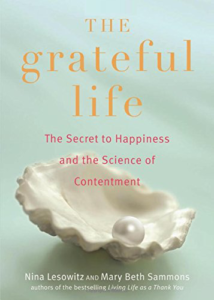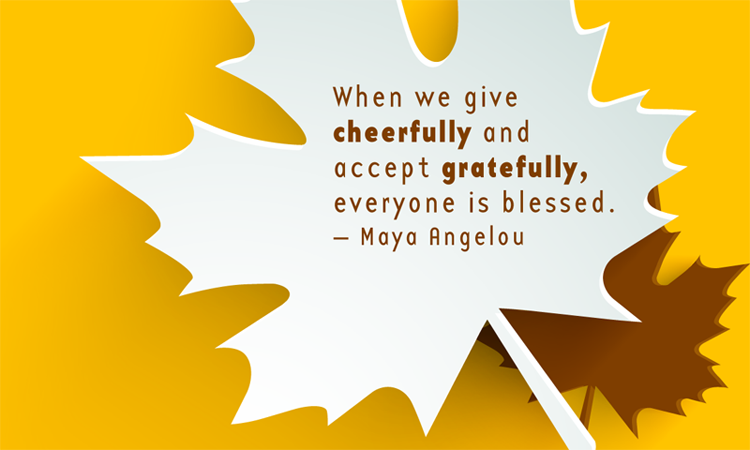We all think we know the story of the first Thanksgiving—the Pilgrims and Puritans who emigrated from England celebrated a bountiful harvest with the Native Americans who’d taught them how to farm essential crops. However, what’s not often mentioned is that the New England colonists didn’t just have one Thanksgiving Day—they had many! It was common practice among Pilgrims to celebrate “thanksgivings,” for everything from a military victory to a much-needed rainfall.
 For the Pilgrims, having enough food to go around was nothing short of a miracle, so they celebrated accordingly. I wonder how showing gratitude went from a frequent practice to an annual one. In our hectic and complicated modern lives, how can we show our appreciation for the everyday gifts that are so easy to take for granted?
For the Pilgrims, having enough food to go around was nothing short of a miracle, so they celebrated accordingly. I wonder how showing gratitude went from a frequent practice to an annual one. In our hectic and complicated modern lives, how can we show our appreciation for the everyday gifts that are so easy to take for granted?
I’ve been reading The Grateful Life (Viva Editions) by Nina Lesowitz and Mary Beth Sammons, and the book is really resonating with me as we get closer and closer to Thanksgiving. The Grateful Life chronicles the stories of some incredible individuals who have gone through hardships like illness or the loss of a loved one, yet still embrace an attitude of gratitude. Each story concludes with suggestions from the authors and interviewees on how to acknowledge blessings (and blessings in disguise.)
Here are some of my favorite pieces of wisdom from the book:
Thank yourself: “Take some time to see the good in yourself, and give thanks for the qualities that you admire about YOU!” advise Lesowitz and Sammons. “When you look in the mirror, do you immediately notice a flaw? It is hard not to do this, since we are surrounded by messages of self-improvement. What if, instead, you looked in the mirror and concentrated on something you like about your reflection? And then took that one step further, by taking pen to paper and listing 10 things you like about yourself?”
Gratitude every day: Author Nina Lesowitz says her gratitude practice is dependent on thankfulness for even the very mundane in life. She writes, “If, like me, you have a tendency to think worrisome thoughts, begin to notice them and then offer yourself a counterthought. For instance, if you are driving in your car, worried about being late, acknowledge that, but also give thanks that your car didn’t choose that moment to break down. Thank you, car.”
The ABCs of thanks: If you’re lying in bed, tossing and turning, try this appreciative alternative to counting sheep: “Start with the letter ‘A’ and think of something you’re grateful for that begins with A. Then go on to B, and work your way through the alphabet.”
I’ll admit it: it’s easy to lose sight of all the good in my life when I’m consumed with work, my family, and balancing it all. I’m inspired now to be more conscious of even the ordinary things I’m grateful for, like a few minutes of meditation or a traffic-free commute. What do you think? Will you join me in cultivating your own gratitude practice even after Thanksgiving is over?

Rose Caiola
Inspired. Rewired.


